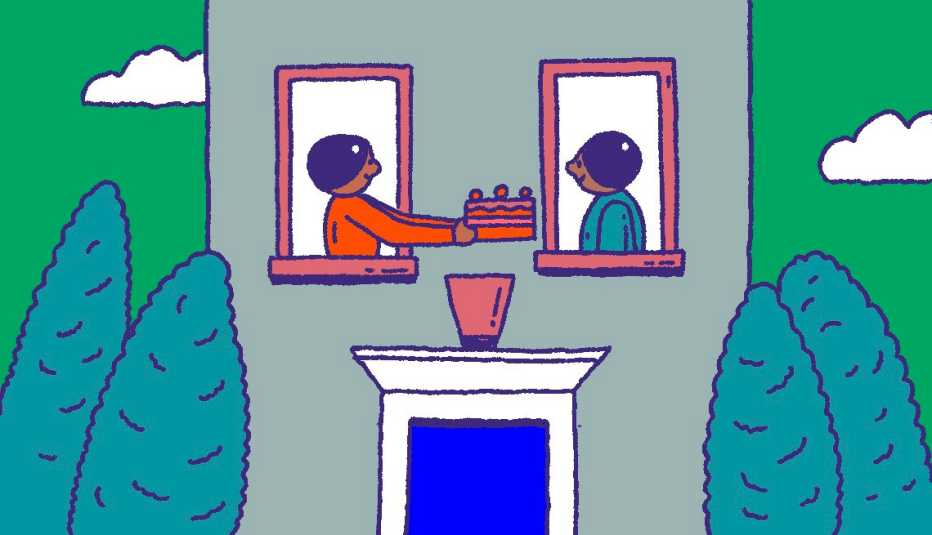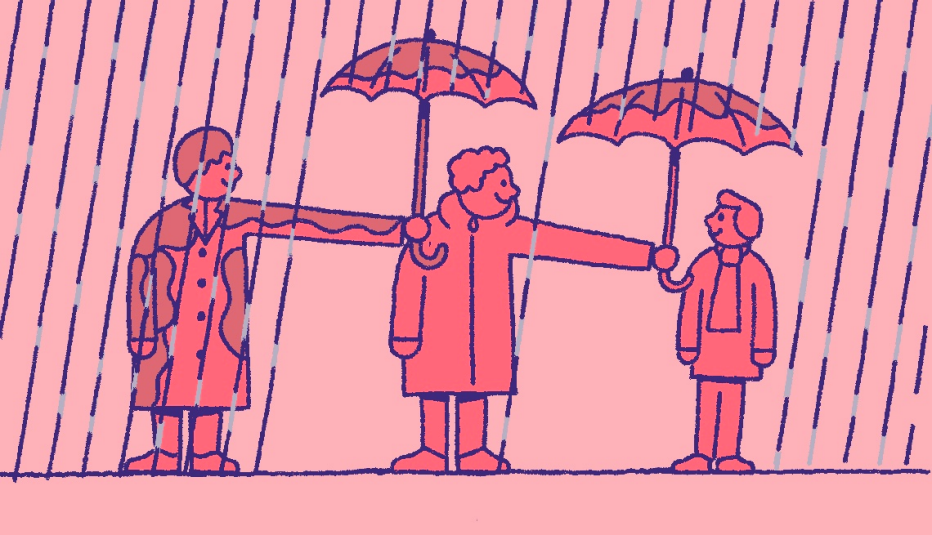AARP Hearing Center


It starts raining on your walk to work and you didn’t bring an umbrella. You stop by your favorite cafe for a cup of Joe and spill coffee all over your sweater. Or maybe you just woke up on the wrong side of the bed.
Days are filled with challenging moments – big and small. Thankfully, there’s an antidote to all that negativity that’s easy and free: kindness. And with February 17 being National Random Acts of Kindness Day, it’s a great time to start!
“Kindness is uncomplicated,” says Stephen G. Post, director of the Center for Medical Humanities, Compassionate Care and Bioethics at Stony Brook School of Medicine in New York. “It doesn’t take much to be kind.”
And the best part: We all have kindness built in, says Post, 72, adding that babies show natural kindness as early as 6 months old.
As for the trope that the older we get the crankier we get, “I think that’s just a stereotype. I don’t believe it for a minute.” Older adults are often more dedicated to the well-being and happiness of others, “because they realize that their time is going short,” says Post. “And so in a lot of ways, mortality, I think, is the mother of kindness.”
Here is why kindness is good for everyone and 18 big and little ways to be kind.
Kindness has all sorts of benefits
Kindness helps you live longer. A random act of kindness, however small, can have a positive health impact on both the recipient and the giver.
Much like sleep, exercise and diet, kindness should be factored into your day-to-day life as part of healthy living, as it’s rather important to survival, says Emiliana Simon-Thomas, the science director at UC Berkeley’s Greater Good Science Center in Berkeley, California.
A 2023 study published in the Annals of Behavioral Medicine showed that engaging in “informal helping” (or random acts of kindness) is associated with decreased mortality.
Kindness “makes you live longer [and] makes you less vulnerable to the main kind of disease states that are of concern for Americans in later life,” says Simon-Thomas, 51.
Kindness reduces negative emotions. Kindness has health benefits, but it also just feels good. In fact, Post says practicing or receiving kindness actually reduces negative emotions.
“Neurologically, when you’re kind, it actually turns off the neural circuits that are associated with negative emotions like hostility, anger, bitterness, resentment.”






































































More From AARP
How to Catch ‘Lucky Girl Syndrome’ and Why You’d Want to
Anyone can benefit from this power-of-positive-thinking trend
Recommended for You